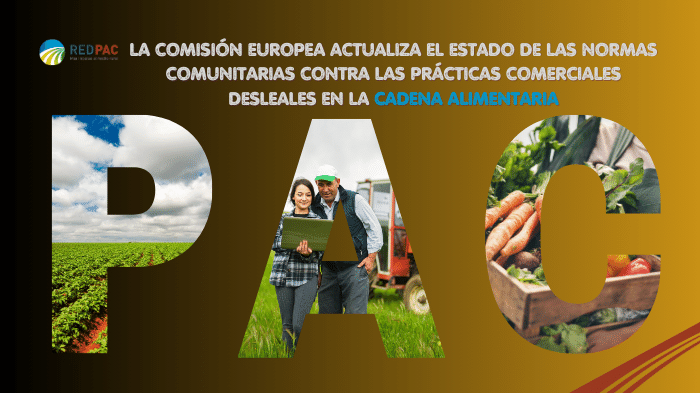
27 de May de 2024
The most frequently detected unfair trade practices were late payments for agricultural products (50%) and perishable or non-perishable food products (13%). Approximately 41% were identified at the retail level and 36% at the food industry level.
- The report on the implementation of the Unfair Trading Practices Directive (UTP) in the food supply chain was one of the Commission's commitments to strengthen the position of farmers in the food supply chain.
- The report contains the results of the survey of farmers on unfair practices in the food chain.
- The Commission will also propose new rules on the cross-border enforcement of dishonest commercial practices this year.
On April 23, the European Commission (EC) published a report on the implementation of the Unfair Trading Practices Directive ( UTP ) in the food supply chain as part of its commitment to strengthening the position of farmers in the food supply chain, one of the demands put forward by the agricultural sector this year.
In fact, the PCD Directive was adopted in 2019 and prohibits 16 practices that can have harmful effects on the weakest actors in the food supply chain, particularly farmers and smaller suppliers. Improving farmers' position in the food supply chain, supporting their incomes, and ensuring fair remuneration are three of the important objectives of the Common Agricultural Policy ( CAP ).
The Unfair Commercial Practices Directive entered into force on 1 May 2019 and required Member States to transpose it into their national legislation by 1 May 2021. By December 2022, all Member States had notified the Commission of this transposition. In 2023, around 1,500 investigations were opened, of which around 17% resulted in an infringement punishable by a fine.
2024 Report
The report covers three main points: unfair practices identified at the Community level to date, areas for improvement of said regulation according to the latest survey carried out on the sector and new regulations to be presented by the Commission in 2024.
A) The most frequently detected unfair commercial practices in Europe have been:
- Late payments for agricultural products (50%) and perishable or non-perishable food (13%)
- Payments not related to a specific transaction (7%)
- Payments requested from the supplier for marketing actions (7%), as well as for storing, displaying and quoting (7%)
Around 41% of the unfair practices detected were identified at the retail level (47% in 2022), 36% at the food industry level (27% in 2022) and 22% at the wholesale level (25% in 2022).
B) Regarding improvements to this regulation, the recent survey conducted in the sector "identification of unfair practices in the food chain" has yielded the following results:
- Awareness of the existence of EU regulations in this area is very low (38% of respondents).
- More than half of respondents (57%) do not know the state entities responsible for enforcing the law.
- When asked why they did not report an unfair trade practice they had experienced, respondents indicated fear of some kind of retaliation from the buyer (30%), followed by considering it a common practice in the sector (23%) or thinking that the enforcement authority would not be able to handle it (17%).
C) The EC's commitments to strengthen the position of farmers in the food supply chain involves creating new rules on the cross-border application of unfair commercial practices:
- Creation of the EU Agri-Food Supply Chain Observatory ( AFCO ) to increase transparency regarding prices, cost structures, and the distribution of margins and added value in the supply chain.
- Specific changes to the Regulation establishing a Common Market Organization ( CMO ) in agricultural products . This will include new rules on contracts between farmers and buyers and a strengthening of producer organizations to enable farmers to cooperate and act collectively more effectively.
The report will inform a more detailed assessment of the implementation of the PCD Directive, which the Commission will present in 2025 and which could be accompanied by legislative proposals.











